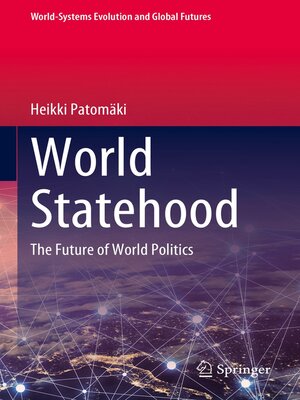World Statehood
ebook ∣ The Future of World Politics · World-Systems Evolution and Global Futures
By Heikki Patomäki

Sign up to save your library
With an OverDrive account, you can save your favorite libraries for at-a-glance information about availability. Find out more about OverDrive accounts.
Find this title in Libby, the library reading app by OverDrive.



Search for a digital library with this title
Title found at these libraries:
| Loading... |
Developing a processual understanding of world statehood, this book combines history, political philosophy, explanatory social science, and critical-reflexive futures studies. While doing so, it poses essential questions about world political integration, especially (i) whether and to what degree elements of world statehood exist today, (ii) whether the development of further elements of world statehood in some stronger sense can be seen as a tendential direction of history, and (iii) whether, and under what conditions, a world state could be viable?
The book is organised into three parts. The first part, "Cosmopolitical processes", explores whether world history as a whole is directed towards planetary integration, focusing on the emergence of cosmopolitanism, the world economy, and the peace problematic. The second part of the book, "Reflexive futures and agency", focuses on the contemporary 21st-century processes of world history in terms of how non-fixed pasts, changingcontexts, and anticipations of the future interact. The author explains how certain rational directionality is compatible with the possibility of deglobalisation, disintegrative tendencies, and "gridlock" in global governance in the key areas of the economy, security, and environment. In the final part of the book, "World statehood and beyond", the author develops further the processual and open-ended account of the formation of interconnected elements of world statehood by discussing the cases of a global greenhouse gas tax and world parliament. He also analyses the feasibility of different paths towards global-scale integration and the potential for conflicts, divisions, and disintegration.
This book is a must-read for students and scholars of political science, international relations, history, sociology, political philosophy, and futures studies interested in a better understanding of world statehood, world political integration, as well as the future of world politics.






